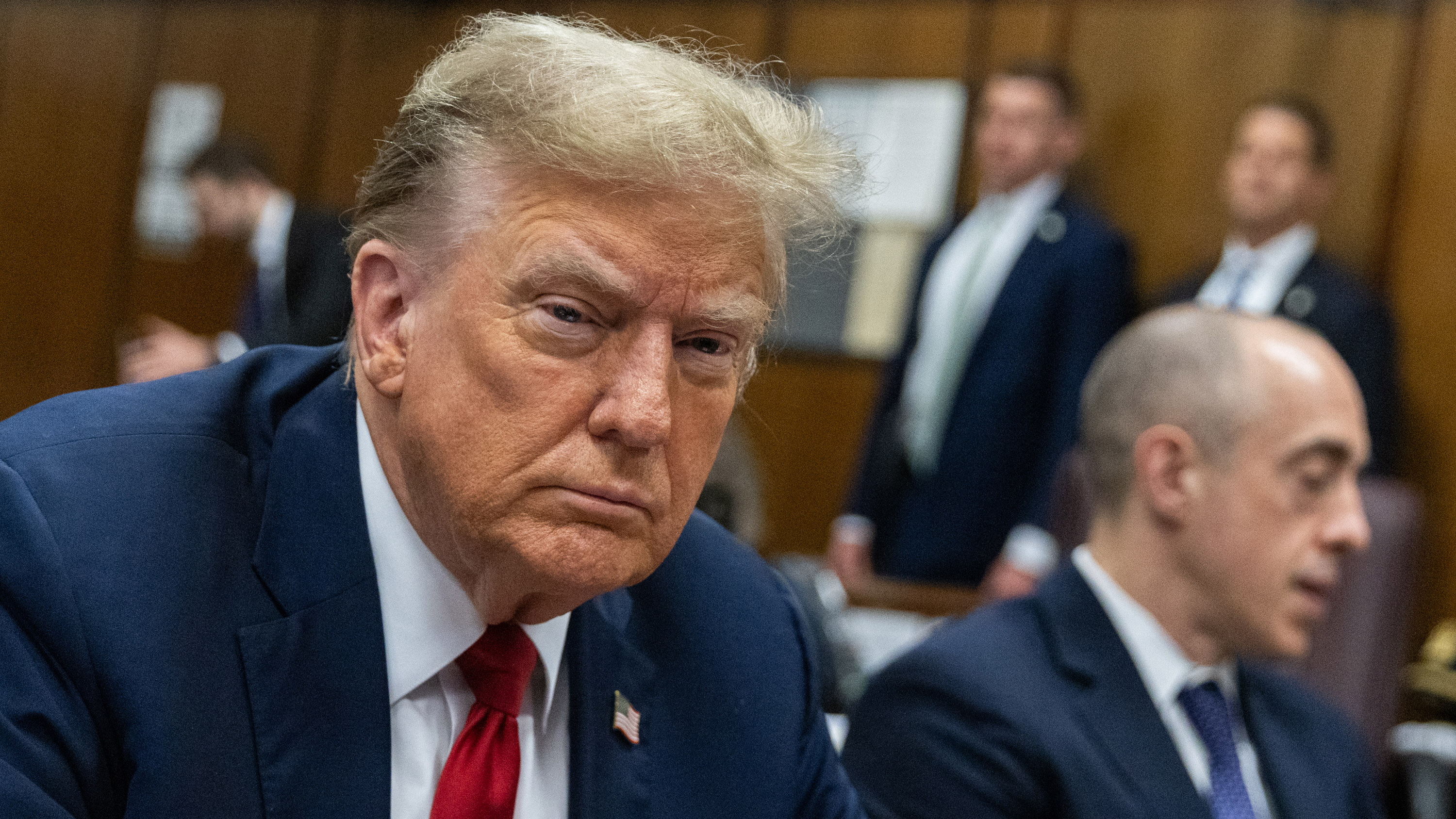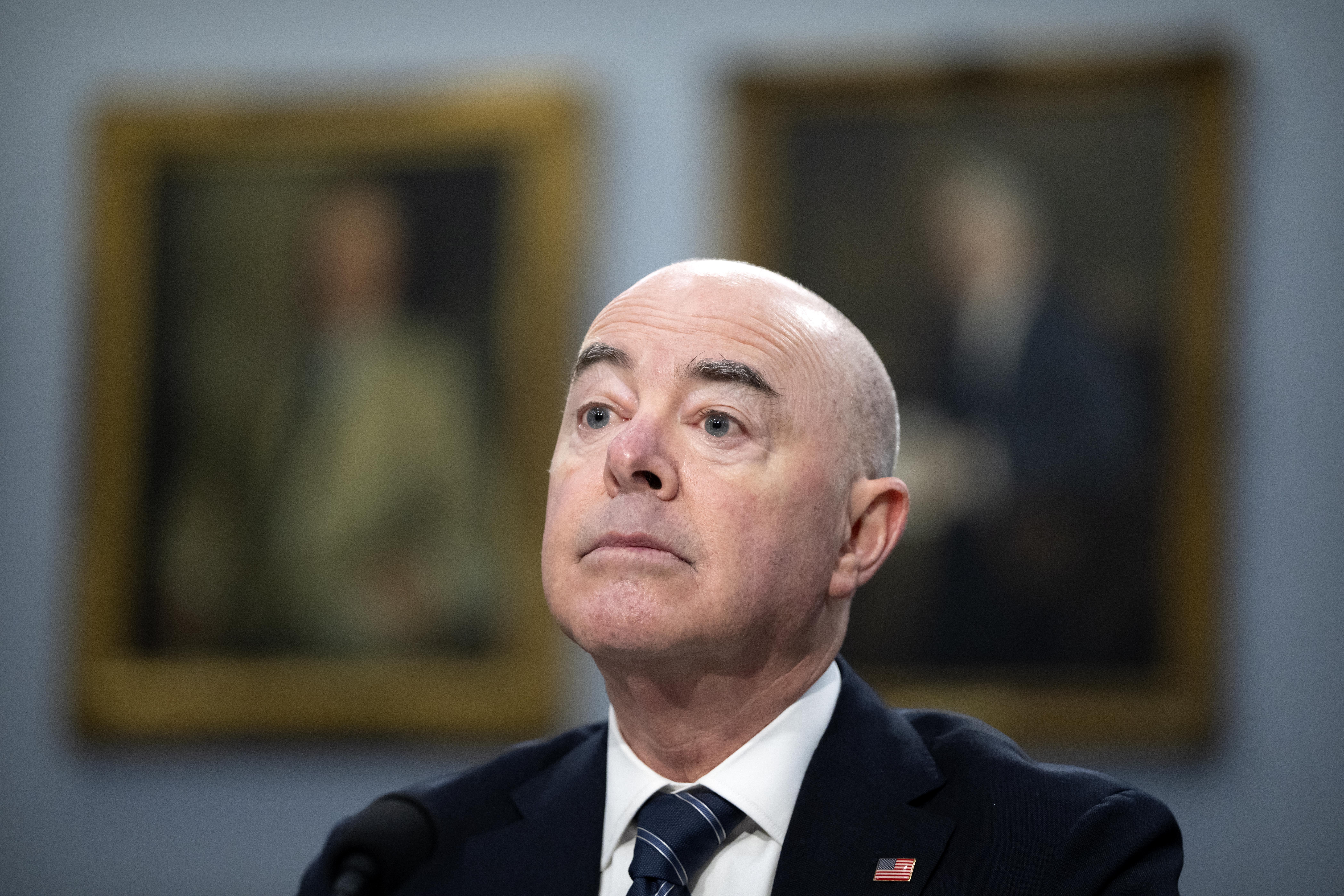Mick Mulvaney, President Donald Trump's pick as leader of the nation's top financial watchdog agency, said Monday that he was imposing a 30-day freeze on hiring and new rulemaking as he moves to take control of the Consumer Financial Protection Bureau.
Meanwhile, Leandra English, who was elevated to the same position by the bureau's outgoing director, met with top Senate Democrats. She has asked a judge to issue a temporary restraining order to block Mulvaney from taking over the bureau.
The fight is moving to a federal courtroom in Washington, where Judge Timothy Kelly, a Trump appointee approved recently by the Senate, will hear arguments on the case late Monday afternoon.
Mulvaney, the current White House budget director and a former Republican congressman from South Carolina, has called the agency a "joke" and an example of bureaucracy run amok. But he said Monday that he would keep the CFPB open.
"This agency will stay open. Rumors that I'm going to set the place on fire, or blow it up or lock the doors are completely false," he said. "I am a member of the executive branch of government. We intend to execute the laws of the United States."
He said there will be a 30-day freeze on hiring and new rulemaking, as well as a freeze on payment from the civil penalties fund for at least 30 days. He said if there were statutory or legal guidelines, they would be met.
Mulvaney said the day went smoothly, though he said the power struggle may be awkward for people who know English. Responding to news reports about the conflicting leadership, he said, "There was one person today who showed up at work claiming to be director. She wasn't here."
Politics
But earlier in the day, it was a battle of optics as Mulvaney and English jostled for control via emails, tweets and doughnuts.
English sent staff an email offering Thanksgiving wishes. Mulvaney then emailed staff to tell them to "disregard" any instructions from English. Both signed their missives "Acting Director."
English has cited the Dodd-Frank Act, which created the Consumer Financial Protection Bureau. She said that as deputy director, she became the acting director under the law and argued that the federal law the White House contends supports Trump's appointment of Mulvaney doesn't apply when another statute designates a successor.
She was promoted from chief of staff to deputy director by Richard Cordray as he prepared to resign last Friday. Cordray was appointed to the position by President Barack Obama and has been long criticized by congressional Republicans for being overzealous but lauded by consumer advocates for aggressively going after banks for wrongdoing, like in the case of Wells Fargo. He was one of the last Obama-era political holdouts.
Cordray said Monday that the issue should be settled by a court.
"The law says that I shall appoint the deputy director, and I did so," he said. "My understanding of the law is that the deputy director becomes the acting director upon my departure. If there are disagreements about those issues, then they should be settled in the courts."
White House press secretary Sarah Huckabee Sanders said at Monday's briefing that Mulvaney has "taken charge" of the bureau and has the "full cooperation" of the staff.
At the center of the controversy are two laws: the Dodd-Frank Act, the law passed after the financial crisis that created the bureau, and the Federal Vacancies Reform Act, which gives the president authority to appoint temporary department heads while their permanent nominees are approved by the Senate.
While the Vacancies Act does allow a president to appoint acting directors at agencies like the CFPB, the Dodd-Frank Act has specific language that seems to indicate that only a deputy director can step into the acting director position. English was elevated to the deputy director position shortly before Cordray resigned.
But English's push to be recognized as the legitimate acting director took a blow Monday after a memo was released from Mary McLeod, the CFPB's general counsel, saying she agreed with the White House that Mulvaney should be recognized as acting director.
The Office of Legal Counsel, which acts as a legal adviser to the president, also argued that Mulvaney, not English, was the legitimate director of the department.
One straightforward solution to the issue of who runs the CFPB is for Trump to nominate his own permanent director. But it may take several weeks for someone to be nominated and even months until the Senate were to confirm his or her appointment.
Until the issue of who is in charge is cleared up, any actions taken by the CFPB are likely to come under legal scrutiny from the banks, credit card and other financial companies that the agency oversees. No fines are likely to be imposed or new regulations written.



